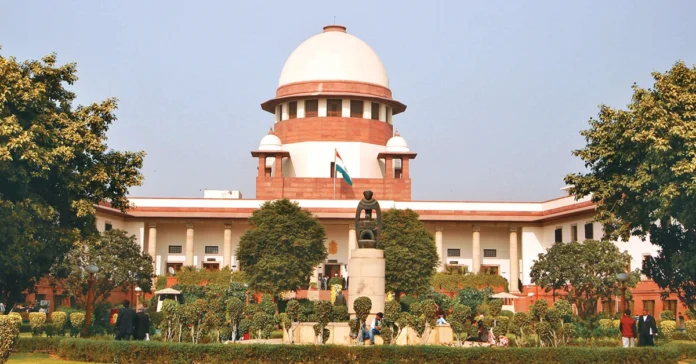The Supreme Court on Tuesday directed the Central government to seek expert opinion on how to do away with the blanket ban on blood donation by transgender persons, gay men and sex workers without compromising on medical safety and precautionary safeguards.
The Bench of Justice Surya Kant and Justice N Kotiswar Singh passed the order while hearing three petitions challenging the National Blood Transfusion Council’s guidelines, which banned transgender persons, gay men and sex workers from donating blood.
Appearing for the Central government, Additional Solicitor General (ASG) Aishwarya Bhati submitted that the guidelines were issued by the Blood Transfusion Council of India on the grounds that normally, blood donation from these categories should not be taken as they were high-risk.
Taking strong objection to the submission, the top court of the country said unless the Union of India could show a direct link between transgenders and these diseases through medical evidence, it could not brand all transgenders as risky. This kind of segregation would enhance prejudice, stigma, and bias against these communities, it added.
The Bench made these observations while hearing three petitions challenging the Guidelines on Blood Donor Selection and Blood Donor Referral, 2017, issued by the National Blood Transfusion Council (NBTC) and the National Aids Control Organization (NACO) under the aegis of the Union Health Ministry.
The petitioners, all members of the LGBTQ+ community, contended that Clauses 12 and 51 of the guidelines prohibited transgender persons, gay men and female sex workers from donating blood on the grounds that they belonged to high-risk HIV/AIDS category.
The petitioners included author and former journalist Sharif D Rangnekar, activist Thangjam Santa Singh, and activist Harish Iyer.
The Union of India earlier filed an affidavit in the plea moved by Singh, contending that there was substantial evidence to demonstrate that transgender persons, men having sex with men, and female sex workers were at risk for HIV, Hepatitis B, or Hepatitis C.
The affidavit further claimed that the determination of the population group, to be precluded from being blood donors, was prescribed by NBTC (a body comprising medical and scientific experts), based on scientific evidence.
The issues raised fell within the ambit of the executive and not required to be considered from a public health perspective, rather than an individual rights perspective, it added.
The petitioners claimed that the 2017 guidelines infringed on the fundamental rights to equality, dignity, and life of members of the LGBTQ+ community, as well as female sex workers.
They asserted that the exclusion of the above class of persons, solely on the basis of their gender identities/ sexual orientation, was not only unreasonable but also unscientific.
Noting that many countries, including the United States, the United Kingdom and Canada had changed their rules to allow gay men to donate blood, the petitioners contended that the ban was based on outdated and biased views from the 1980s.
Medical technology has greatly improved since, especially in blood screening, they noted.
The plea filed by Sharif D Rangnekar further prayed for new guidelines that would allow gay men to donate blood, with some reasonable restrictions. It suggested public campaigns to inform society about risky behaviours and the updated guidelines.
The petition further sought changes in the syllabus of medical students, sensitizing them that gay men could also donate blood.


